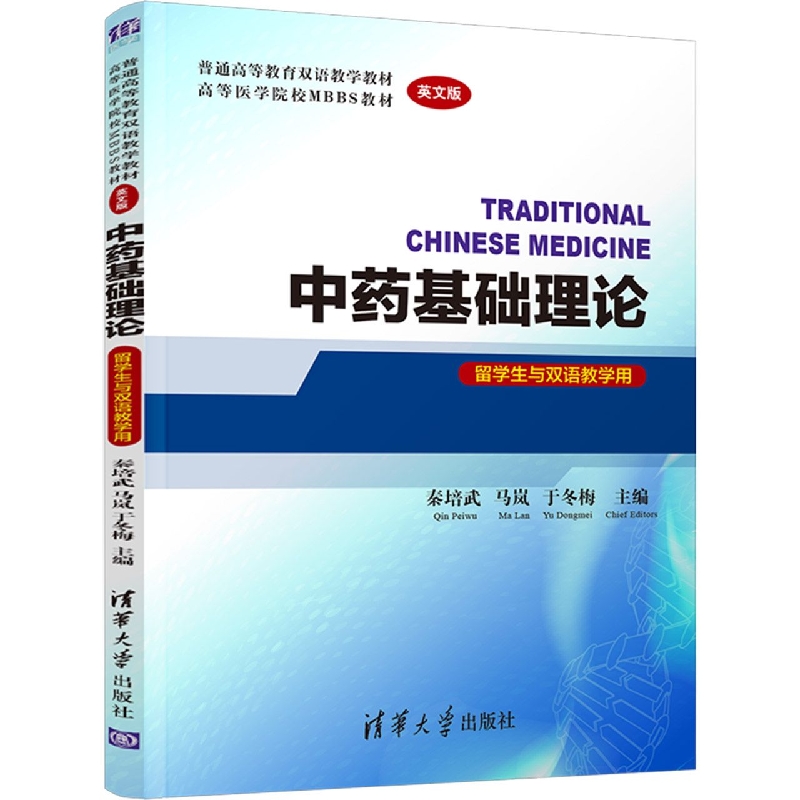
出版社: 清华大学
原售价: 49.80
折扣价: 40.34
折扣购买: 中药基础理论(英文版)
ISBN: 9787302591122

秦培武于2002年获得东北农业大学生物技术理学学士学位, 2005年获中国科学院发育生物学硕士学位,2008年在美国东北大学获得物理化学硕士学位,2013年获美国密苏里大学的统计学硕士学位和生物化学博士学位。从2013年8月至2018年8月,美国加州大学伯克利分校物理学系博士后。现任清华大学清华-伯克利深圳学院的助理教授,博士生导师。 目前研究领域是光学成像,生物医学及中医图像处理以及生物医学VR的应用。
Chapter 1 ANCIENT CHINESE PHILOSOPHY AND HISTORY one OF TRADITIONAL CHINESE MEDICINE Traditional Chinese medicine (TCM), as one of the representative gems of traditional Chinese culture, has been practiced in China for thousands of years. TCM reflects the great wisdom and talent of the Chinese people. TCM is based on ancient Chinese philosophy and demonstrates an empathetic understanding of the world. Although modern medicine is very popular, it still has a significant impact on modern society. The diagnosis and treatment of modern medicine depends on cutting-edge technologies and advanced medical instruments. This acquired information is relatively accurate, detailed and comprehensive, making the diagnosis intuitive, vivid, and convincing. In contrast, the diagnosis in TCM is obscured due to the lack of detailed quantitative measurements, including observing, smelling, questioning, and touching the pulse. After observation, sensation, analysis, judgment, and reasoning, TCM practitioners make diagnostic conclusions, which seem incredible and mysterious. However, TCM practitioners provide an individualized diagnosis. What are the principles and theories used by TCM to diagnose and treat diseases? Some people believe that “TCM relies on consciousness to cure diseases.” As we advance in the development of ancient Chinese philosophy and medicine, it will become clear what the theoretical foundations are for TCM diagnostics and therapeutics. 1.1Ancient chinese philosophy Philosophy is the unity of methodology and systematic worldview, including natural, 中药国际化教材